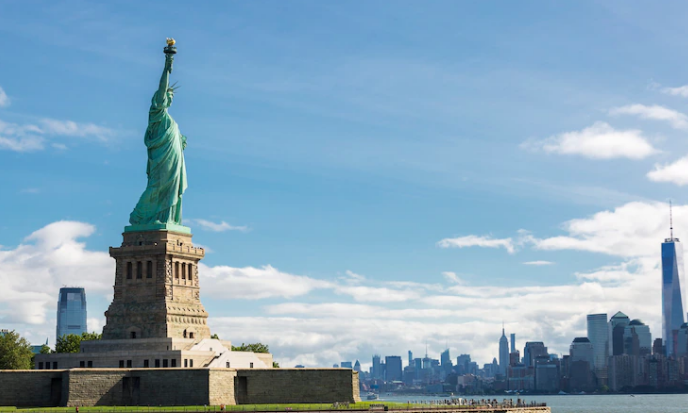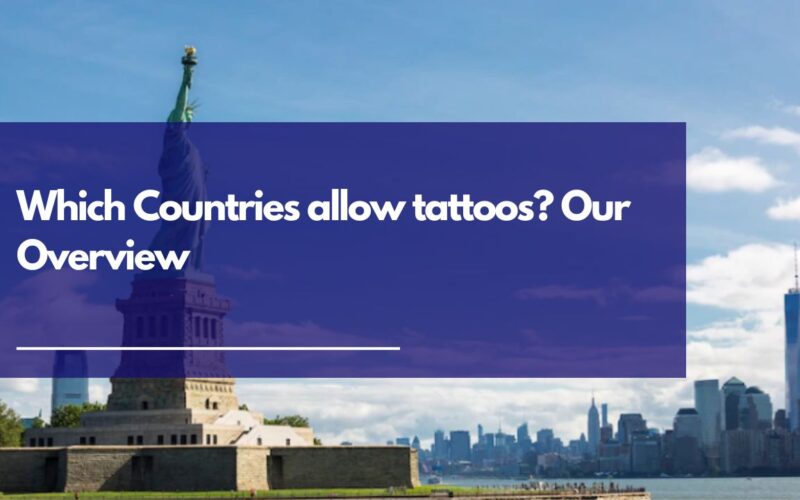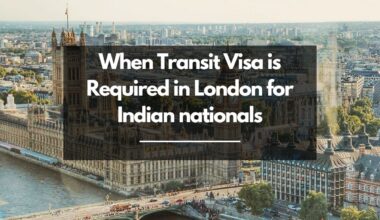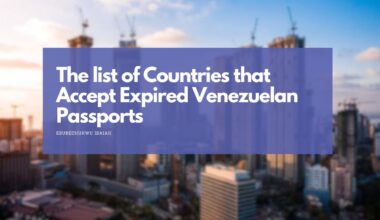As an Amazon Associate, I earn a small commission from qualifying purchases. Learn more about this.
From ancient tribes to modern subcultures, tattooing has been a form of expression for thousands of years. The acceptance and legality of this art form, however, varies from country to country.
In this article, we take a good look at what countries allow tattoos in actuallity.
Which Countries allow tattoos across the world?
Let’s Start with the United States

The U.S. is a hotspot for tattoo enthusiasts. It’s not just legally allowed, but it’s also widely accepted and embraced across many states and communities.
With shows like “Miami Ink” and “Ink Master” popularizing the culture, tattoos have shifted from being a sailors’ or bikers’ mark to mainstream fashion.
Different states have different age restrictions, but tattoos are largely accepted, with many workplaces even allowing visible tattoos.
While the military and some professions might have rules regarding visible tattoos, the general atmosphere in the U.S. is pretty ink-friendly.
Across the Europe
In Europe, the story is quite similar.
For instance, in Italy, tattoo culture is alive and well. Whether it’s a tribute to someone, a religious symbol, or just for the sake of art, many Italians sport tattoos.
Famous footballers and celebrities often flaunt their ink, making it more acceptable in popular culture.
This is also common within Spain and the United Kingdom which has a significant number of tattooed individuals.
It’s legal, and the societal acceptance is generally high, especially among younger generations.
However, just a short flight away in Turkey, the perspective shifts slightly.
While tattoos aren’t illegal, they might not be as widely accepted, especially among the older and more conservative population. But, in cities like Istanbul, the younger crowd is more open to and accepting of the art form.
Generally, keep in mind that each country has its regulations regarding age restrictions, and it’s always better to be well-informed before getting inked.
Asia: A Mixed Bag

Moving over to Asia, the narrative gets a bit more nuanced.
Yes, you can get a tattoo in countries like Japan, South Korea, and Thailand.
But bear in mind, the societal perception might not be as welcoming as in Western countries.
In Japan, for instance, tattoos have a historical association with the Yakuza (organized crime groups), which has led to some stigma and restrictions, especially in public baths and gyms.
On the other hand, in South Korea, you can only get a tattoo when by a certified medical professional.
Australia and New Zealand
Australia and New Zealand are quite liberal when it comes to tattoos.
In Australia, it’s common to see individuals with tattoos, and the country hosts numerous tattoo events annually.
New Zealand’s Maori population has a rich tradition of tattoos or “Ta Moko”, making it a significant part of the cultural landscape.
Middle East
In the Middle East, particularly in countries like Saudi Arabia and Iran, there is a noticeable conservative attitude towards tattoos.
Although not broadly outlawed, they’re often viewed through a stringent cultural and religious prism.
In Saudi Arabia, for example, tattoos are generally considered taboo, as they are seen as a defacement of the human body and frowned upon by traditional communities.
Visible tattoos can attract negative attention and might be associated with a rebellious or non-traditional demeanor.
In the United Arab Emirates, while there’s a budding tattoo industry thanks to a mix of expatriates and open-minded locals, it is still essential to be discreet about tattoos to respect the local cultural sentiments.
Displaying tattoos openly, especially ones that could be interpreted as offensive, is frowned upon and might attract unwanted scrutiny.
Africa
Switching focus to Africa, let’s consider Egypt and South Africa.
In Egypt, tattoos are not part of mainstream culture and can be associated with subcultures or foreign influence. However, in more touristic areas, one may observe a more liberal attitude compared to more rural regions.
In contrast, South Africa presents a more accepting environment.
Particularly in metropolitan areas like Cape Town and Johannesburg, tattoos are increasingly seen as a form of personal expression and art.
Numerous tattoo studios and annual conventions highlight the growing popularity and acceptance of tattoos in South Africa, marking a contrast to more conservative regions on the continent.
4 Tips for Tattooed Travelers
1. Research Before You Go
Before you pack your bags and jet off, take a moment to research the tattoo norms and perceptions in the country you’re visiting.
For example, as discussed earlier, countries like Japan and Saudi Arabia have specific cultural sensitivities around tattoos. Knowing these nuances ahead of time can help you avoid uncomfortable situations and ensure a more enjoyable travel experience.
2. Be Discreet When Needed
Some countries or regions might not be as open to tattoos as others. In such places, it’s a good idea to keep your tattoos covered, especially in public spaces or religious sites.
Pack clothing that can conveniently cover your tattoos when necessary. This simple step can help you blend in better and show respect for local customs and traditions.
3. Be Prepared for Curiosity
In many places around the world, especially in regions where tattoos are not common, people might be curious about your ink.
Be prepared for questions or stares, and have a friendly and respectful response ready. It’s a chance to share your tattoo stories and possibly debunk some myths along the way.
4. Understand and Respect Cultural Significance
Some tattoo designs have particular cultural or religious significance in different countries.
For instance, the Maori tattoos in New Zealand are a sacred art, and non-Maori individuals sporting similar designs could be viewed as disrespectful.
Ensure your tattoo designs do not unintentionally offend the local communities you are visiting.
Conclusion
While many countries allow tattoos legally, the cultural and societal acceptance varies.
From the open arms of Australia and the United States to the more cautious or conservative perspectives in the Middle East and parts of Asia, the global tattoo landscape is actually diverse.







